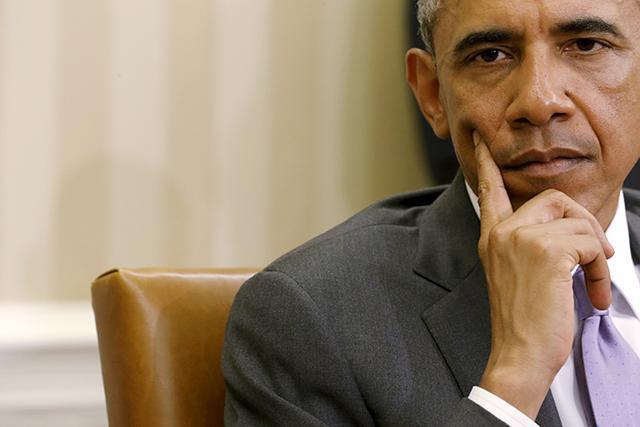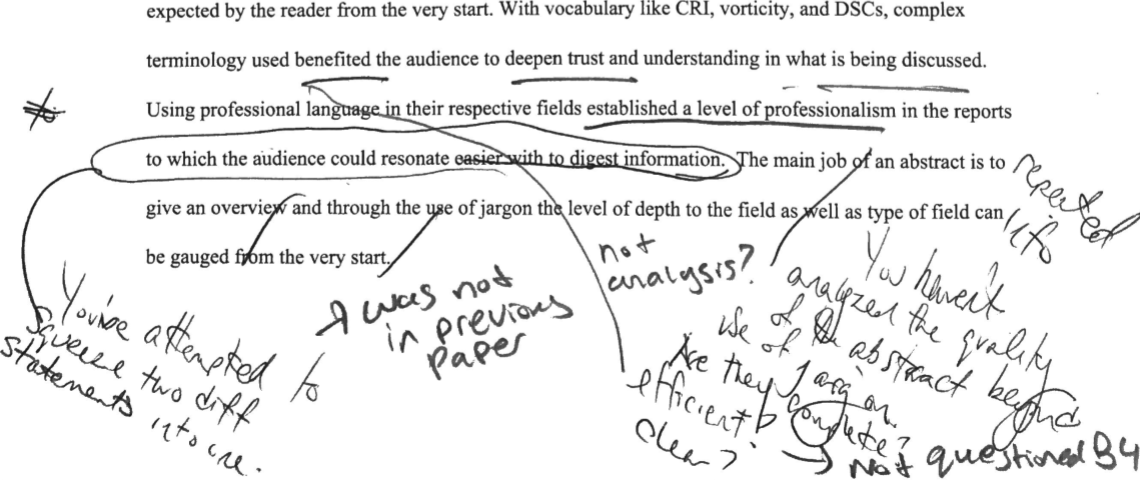I remember doing my first official assignment, the memo, and getting back my paper. I had submitted the draft thinking that there may be a couple mistakes in the piece with a simple couple flaws but the enormous disappointing grade of an F- I received made me question what I was doing: I had to completely re-assess the way I was writing throughout the course of this semester. The journey towards achieving technical writing taught me a valuable lesson and outlook: writing is not supposed to be a one step process of success. The triad of projects I have done this semester have time and time again proved the importance of a developed implementation of writing process, and have instilled a mindset of growth which I have taken while in Writing for Engineers.
My first assignment was the formal letter. I had submitted the assignment thinking that a letter was simple enough to complete with proper format however, I had lacked proper format for very specific details. Unlike most of the assignments in this course however, we were not allowed final revisions on our letter. By not being prompted to correct my mistakes, I never took the initiative to understand what I did wrong in the Formal letter. I undermined the issue of following technical writing format and fell victim to the introduction of a bigger problem that came about in the next assignments with the memo.
Through completing the memo, I saw myself as a writer start in the journey of a personal rebirth of writing style, through failure. Writing a memo was a completely new topic that prompted me to go in depth and tackle a problem on campus. Looking back, I find this to be an essential step in becoming a better writer as the project set the need for me to improve my writing, with a failing grade. Not only did I fail, but I also received an overwhelming number of comments. I saw the comments on my paper as challenging my 18 years of English writing experience. I did not expect to fail an assignment completed with dedication and effort, which left me in denial. My inability to accept that I needed to change the way I was doing everything caused my revision of the paper to be the same structure as my original. I had spent countless hours to completely rewrite the paper but my mistakes became repeated in a different form, earning only a slight improvement in my writing overall. I had ran from my mistakes and not gone to correcting them, I wanted to change my revision process.
Figure 1: Responding to professor’s comments in the paper I received back for a deeper understanding
I began the lab report analysis which made me take several lab reports from a specific area of study to analyze in depth differences and similarities in them that impacted their effectiveness. I had trouble initially finding valid sources to meet the rubric, using solely google scholars for sources. From completing the paper, I was able to expand my knowledge of sources available to me as a writer and learned how to identify them acutely with much better search engines like JSTOR and CUNY OneSearch. Using JSTOR and CUNY OneSearch, I was able to find well written lab reports for the assignment. My paper, however, still lacked the the technical language and skill needed for the course to barely pass. I had ran away from tackling every comment made in the Memo, but this time I was motivated to facing the issues to avoid a complete rewrite in revision. I changed revising my paper by responding, to my knowledge, to every comment and mistake made on my lab report analysis. I invested hours answering and correcting every question asked, diligent to come up with each piece but it didn’t help. I was not revising right. Though I had put in a tremendous amount of effort into revising and working on specific questions asked of me, I failed to understand where each of the comments were coming from in the larger scheme of the paper. I didn’t recognize the importance of using specific subjects, reiterating myself, and being clear. I still could not write the analysis to the class’s expectations on the first write. As shown in figure 1, I annotated every comment I received back in an effort to reach out out my professor about the paper and from doing so, I was finally able to understand the comments made on my submission much better. I started looking at writing more as a blank medium where I had to entirely break down every subject and component of what I was talking about or else my reader would be lost: imagine guiding a blind person in the dark, having just discovered fire for a torch. By doing the analysis paper, I realized to the extent of how specific I had to be in my writing, and how important that was to express and communicate ideas effectively. I was on track. I had tackled what was asked in technical writing, however my technical revision process was still lacking as I did not implement my revisions fully on my assignment, only tackling specific questions costing my writing in another new aspect.
Figure 2: My paper improving in the revision process, yet still lacking slight consistency in revision.
The final paper I did was a technical description on a pen. I came into the project expecting a pen to be a simple item to breakdown, not needing more than three pages to explain: by the end of my assignment, I had written 10 pages describing every component of the BP5327 pen. I broke the pen into parts, and the parts into components to make sure I was being specific in every aspect of my writing. As figure 2 shows, I had received the paper back with overall better comments regarding my writing, but still having room for improvement. I was able to improve in mechanics through changing my revision process, again. I had revised taking into the nature of comments from the lab analysis, looking at the comments from my technical description with more understanding for what the specifics of my writing needed. If I could have improved my revision process further, I would implement the concept of checking for consistency to fully support my thesis. Through writing this paper, I was able to see my growth and identify the difference in writing style, and affirm that I had moved in the write direction through the motion of the course.
My semester ended in Writing for Engineers with the project proposal assignment. The project proposal was an experience of its own. Unlike the other assignments I have talked about, none had used collaboration and peer feedback to the depth of this assignment. Originally, we had split up the project with ourselves, completed what was expected of us, pasted into a google doc and were ready to submit just that. What we found to be a major concern of that method is that our different writing styles and formats clashed with one another to make the proposal just a groups of puzzle pieces, each from a different puzzle. Our writing did not flow at all so we met up multiple times outside of class to discuss the proposal for direct comments towards each other, but when we were not physically available, we used google docs as a medium to comment on each other’s work and keep each other in balance. We collaborated together with the help of google docs to make sure that our writing could flow as one text and through our united collaborative efforts, it did.
Figure 3: Depicting effort noticed by the professor
The assignments throughout this semester in Writing for Engineers brought me a personal level of growth in my technical writing from my first assignment. As shown in figure 3, I have grown a lot in my writing process from the beginning of the semester, well with effort. Starting with the memo, I overlooked comments made and carried on that habit to failure in my memo, which drove me to completely re-write my entire paper and repeat the same mistakes from before with different words. I then changed my revision process to attempting to tackle every comment directed towards me in the lab report analysis, not taking into account the context of the comments to properly address them. I had failed again and finally began pivoting to enhance my entire revision process by understanding what each comment in my lab report meant through annotating each one to understand with the professor. I began to see the ambiguity in my communication with the audience with vague use of pronouns and filler words that contributed little. Through correcting the structure of my sentences, I understood what the class and assignment in specific was looking for, and in return, this improved my mechanics for the next paper, yet I still lacked a general application towards every instance of some comments. This growth in revision process in all allowed me to grow to a point in my technical writing where the majority of revisions that I ended doing for my technical description was mostly mechanics based: I neglected the point of consistency in my revisions in my lab report analysis, I did lack in that area again in my technical writing. This goes to show that writing is like a tree that branches out of a foundation of a strong stem. I had innovated and kept improving my writing up, but having missed the point of revising with consistency in my lab report, I missed it on the next assignment as well, similar to the mistakes from the memo.For the most part though, my writing process has dramatically changed, incorporating a large amount of positive change.
From the formal letter, the memo, to the lab report analysis, the technical description and lastly the proposal, I find myself having come a long way from the moment I had stepped into Writing for Engineers. With each different assignment, I learned pieces and fragments of what I know now, and all together, they have made me what I am at this moment as a writer. From the small pond of my previous experience with writing to the new experiences I gained taking my writing to a broad level, I feel now that I am truly in an ocean. The writing done in the proposal was an interesting way to end the course as I was able to bring the fruits of the semester and lessons learned into the last assignment to share with other people. I felt open to a big collaborative environment. The proposal transitions me into the closing of my second in college as a Mechanical Engineer as I am branching out to a higher level of more challenging courses and into a more wide net of writing that is expected of me, often times collaborative. I look forward to being able to apply everything I learned this semester to the multitude of contexts that will be available throughout my years and hope to continue to grow as I have done with this class.






